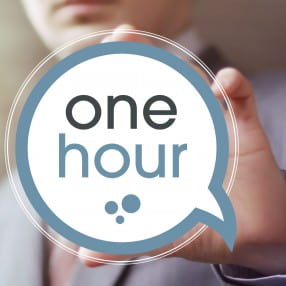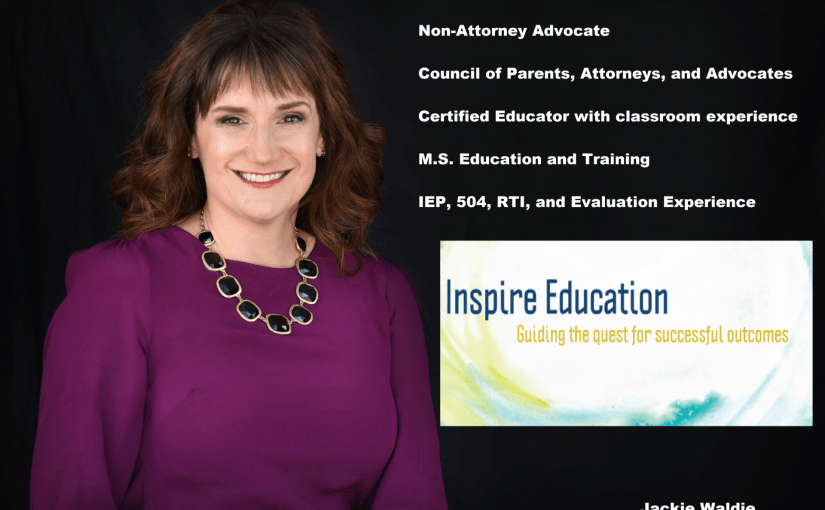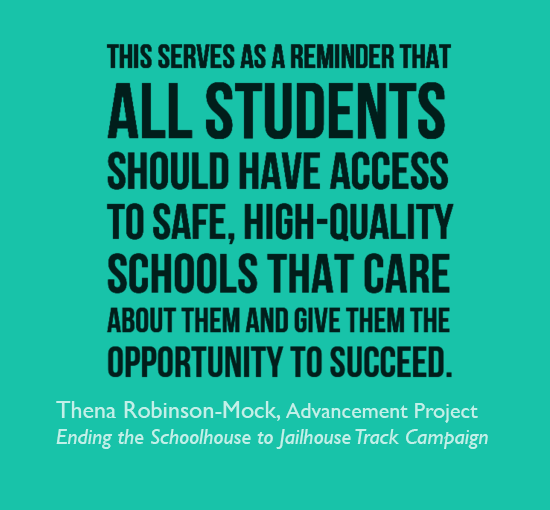Last week, I wrote to my daughter’s teacher and shared my “All About Her” letter. This is standard practice for me every school year. I love that I get to brag about her and explain what works. I also love writing out her specific needs/weaknesses. I love explaining the history of what we know doesn’t work. The teacher loves how honest I am and has a great starting point. It is a wonderful communication tool! I encourage every family I work with to start this practice. There is a real purpose to communicating early and often. It sets a tone and helps the people on your child’s team understand you know them best. This not only helps your child, but it also helps their teacher shape their learning experience specific to their needs. However, this typically does NOT trigger any kind of IEP/504 meeting or being evaluated for a potential disability. (Even though it probably should.) This is where parents start getting confused.
Often families who start working with me tell me they have contacted the school multiple times. They tell me, “I’ve told them my child can’t read. I’ve told them my child is depressed. I’ve told them my child can’t focus.” And to many, this is what they consider initiating a conversation about a potential disability. I can tell you it is not.
First, most of this communication happens with the classroom teacher. FANTASTIC! I love it when families have a good relationship with their child’s teacher. However, in all of my years of teaching not one time did an email, comment, conversation, or request ever lead to a child being tested for a disability. Not once. Most classroom teachers have no idea how to even request services for your child.
Second, when I am looking over emails or texts or an entire educational record, the information parents give is always vague. It usually sounds something like this:
“Dear Mr./Ms Teacher,
Hey! Just wanted to send a quick email telling you I am worried about Johnny’s reading. He just doesn’t seem to be getting it. What do you think?”
This is NOT going to trigger a comprehensive educational evaluation. This is not going to trigger individualized instruction. This is going to gain empathy for your child. This is going to get a teacher looking into how your child’s reading gains. You might even get a response like, “Everything is fine. Children develop differently. Don’t worry.” And then you find yourself worrying year after year because nothing is changing. So how do we get that change? We write another letter! A better one!
Here are my best tips for an effective, “get attention” letter:
1. ALWAYS keep it friendly and professional. Leave your worries, your feelings, your anxiety out of it. (The best word to use is “concern” if you must include something of that nature.) Introduce yourself, explain a little about your child’s history and then move onto your request.
2. Be DETAILED. Simply saying my child is having trouble focusing is not going to get you far. Tell them they can’t sit still, they are out of their seat, they switch topics every five seconds; tell them whatever you objectively observe at home.
3. Include an encouraging call to action, whether that be asking for evaluations, accommodations, a written plan, or meeting in person. I used the word “encouraging” on purpose. I have seen too many demanding “call to action” letters that alienate educators and put them on the defensive. Mention working as a team to figure out what is appropriate for your child.
4. Send it to more than one person. Send it to the teacher, the principal, the school psychologist, and/or the special education teacher. This information is all easy to find online.
I had multiple families utilize this strategy since school has started and things are changing. Meetings are being held, testing is being completed, documentation is happening, and everyone is looking to meet the unique needs of a child. I love being involved in this process! Send me your letters, I’ll look them over, make some suggestions and smile as you watch your struggling child suddenly get some help.





